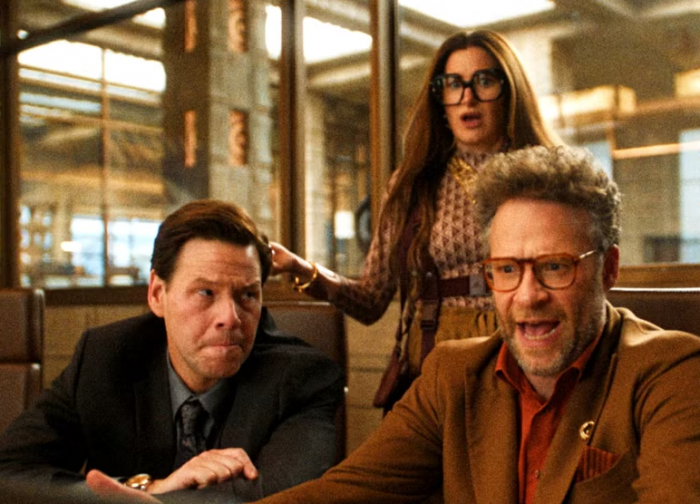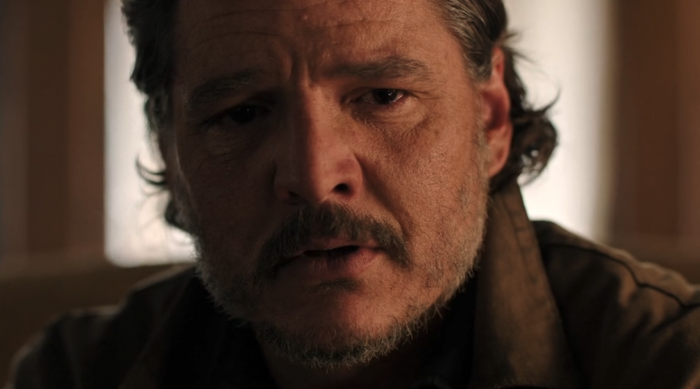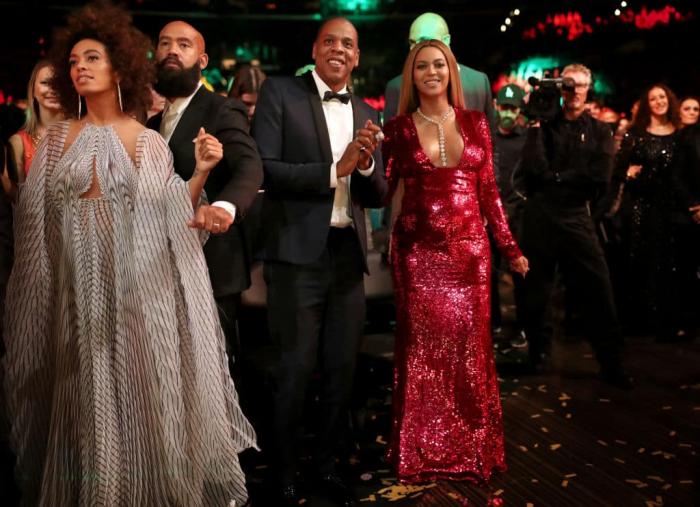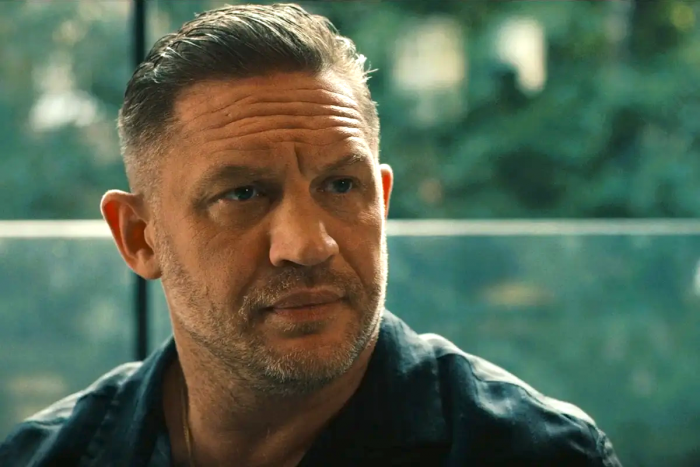
Now On Demand: Ari Aster's 'Beau Is Afraid' Is Not for Everybody, Thank God
By Jason Adams | Film | June 13, 2023

If there’s one thing the last few years haven’t given us, it’s nearly enough anxiety. I was just saying to my boyfriend the other day—you know what I need? I need some extra anxiety in my life. Where’s all of the anxiety hiding??? I guess Midsommar and Hereditary director Ari Aster must have heard me—perhaps he was perched on the ceiling above my bathtub or buried E.T.-like in my closet—because he’s made all my dreams and wants come true with Beau Is Afraid, a three-hour-long panic attack in psychosomatic cinematic form. Pandemic, pshaw! Watching Joaquin Phoenix navigate a couple of days in the life of Beau Wasserman will have you upping your meds the minute you leave the theater. Is Aster on Prozac’s payroll or what?
When we first meet Beau, he’s having a simple calm conversation with his simple calm therapist (the always-welcome character actor Stephen McKinley Henderson). Seems that Beau is about to go visit his mother Mona (played by Zoe Lister-Jones and Patti Lupone at various ages), and the doc wants to know how Beau feels about that. Phoenix, eyes darting, makes us know within milliseconds the emotional roil beneath Beau’s calm surface—this is one of Phoenix’s most live-wire performances, which is, uhhh, saying something. But if you do happen to miss it, Aster’s there to have the walls close in on all of us quickly and surely. After double-checking to see if Beau wishes his mother dead and then prescribing him a new medication (with the repeated warning to Never Consume It Without Water, as if underlining the immediate future in thick red ink), Beau is sent on his way. And his world reveals itself.
See, the second Beau steps into the outdoors we can tell we’re not in a literal version of the world anymore, that Aster’s immediately messing with us. The streets of the city where Beau lives are a literal riot of trigger-warnings—teenagers wielding AK-47s at sidewalk swap meets; shrieking mothers swatting at their children; a group of cow-eyed onlookers with their cell phones aimed up as they prod a man to jump off a ledge. Decomposed bodies lay ashy in the gutter. This is the “City” that Fox News scares conservative suburbanites with—violence unleashed at the Quickie Mart. Beau has to run at full speed to make it into his apartment building before a black-eyed carnival freak can assault him on his stoop. A typical day in the life of!
But inside’s no better. If the COVID lockdowns made you embrace your inner homebody slash hermit side, Aster & Co aren’t about to let you off the hook. Beau’s superintendent seems to be roto-rootering doorways at random, and a posted flier warns that somebody’s brown recluse spider is loose on the prowl. The sounds of city chaos outside the rattling windows are relentless, and a next-door neighbor is shuffling increasingly agitated notes under Beau’s door all night long. Escape, in modern times, is a figment—ethereal as love or legitimate silence. A static electricity of unease vibrates the air as if our bodies and brains swim through a soup of pandemonium. The internet and TV and cell phone signals turn liquid and pour down our throats like thick glossy paint.
Needless to say amid this tumult Beau oversleeps and misses his plane, and so must confront the biggest horror of them all: the resigned silence of his mother’s scalding hot disappointment on the other end of the telephone. And from there, all quickly unravels—to even begin to map out the nature of Beau’s journey over the next couple of hours would take all of the red string and all of the thumbtacks and all of the cork-boards in all of the world, in all of the timelines. There are animated sequences (designed by the Chilean filmmakers behind the 2018 wonder The Wolf House) and there are plays within plays within plays. If you find yourself thinking about the movies of the Maestro of Jewish anxiety Charlie Kaufman, about Synecdoche New York and Anomolisa and I’m Thinking of Ending Things, well I can’t imagine that’s unintended and not a direct influence. Beau’s inner reality, his terrors and night sweats, have telescoped outward to become our experience walking (née trembling) in his shoes. You have to be able to reorganize yourself to that rhythm, or this movie’s gonna leave you high and dry and quite probably bugged the fuck out.
More importantly, if you can’t giggle at the hyper self-involvement on display here, then the gag of Beau’s spectacle is definitely not the movie for you. Because the joke is on us (and I very much include myself among that “us”). On people who get so wrapped up in their own bullshit that every step set before them seems an utter apocalypse of impossibility. The mere act of making a single decision is freighted with so much significance it coils itself around our throats. Aster takes this all so far—so very very far; we’re talking light-years here—that it’s the Looney Tunes version of egocentrism. It’s a warp-mirrored Freudian Follies entertainment show. It is, that is, very very very funny.
But then I’ve been attuned to the humor in many of Aster’s provocations—where some people recoil at the sight of a very strange young girl chewing her Hershey’s candy bar as she snips the head off a dead pigeon with oversized scissors, I myself guffaw. “So we’re just gonna ignore the bear then?” “It’s a bear.” And if you’ve ever seen his 2011 short film The Strange Thing About the Johnsons and not hyperventilated with laughter then you and I, I think we’re probably not watching things on the same wavelength. Aster’s tragedies are so overripe purple they’re like testicles distended set to pop… and that’s a specific Beau gag that I’ll leave you to discover on your own.
Point being, Aster’s movies truly madly deeply ain’t for everybody, and thank goodness. Have you seen the swill made for everybody? But even then there are different ways to take them in, on yonder downward. The humor in Hereditary—Ann Dowd giddily hopping across a parking lot; a naked lady’s little wave—and the humor in Midsommar—we can argue back and forth about its ending, whether its tragedy or farce or quite perhaps both—are turned up to eleventeen with Beau, which isn’t technically a horror movie at all. Even as it too ventures into dark attics where no sane-brained person should go, and finds unspeakable things twitching under its rafters.
The scene out of former cinema that I found myself thinking of the most during Beau’s truly deranged third act, an unyielding series of humiliations where all of the floors beneath us drop away and we’re truly left whistling dick in the wind, was Peter Jackson’s 1992 zombie-comedy gore-fest Dead Alive of all things. How I’d love to see that movie’s smothering Mum, an undead nightmare who’s mutated into a two-story-tall snapping womb with teeth, showdown with Patti f’ing Lupone. A Thunderdome of maternal disappointment! Two stories tall ain’t shit—I have no idea how she’d manage, but betting against Patti f’ing Lupone is always a fool’s game. That was Beau’s biggest mistake—don’t let it be yours!



